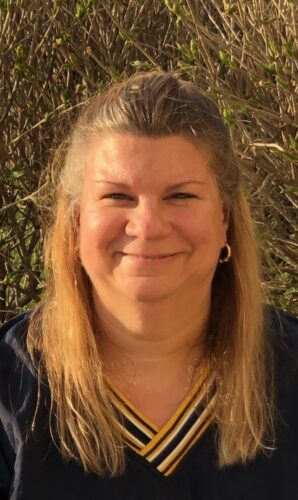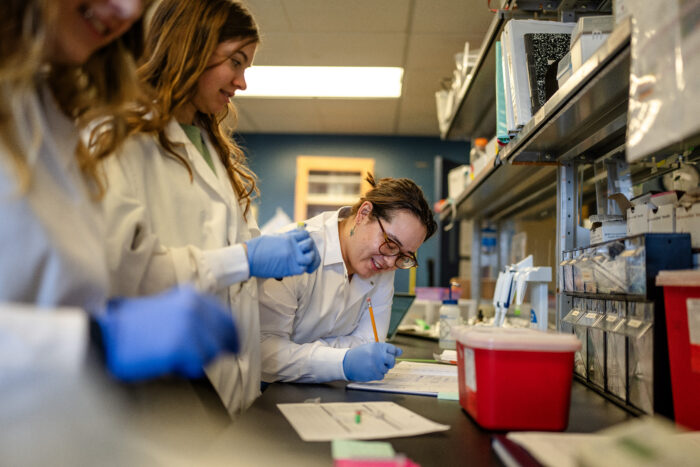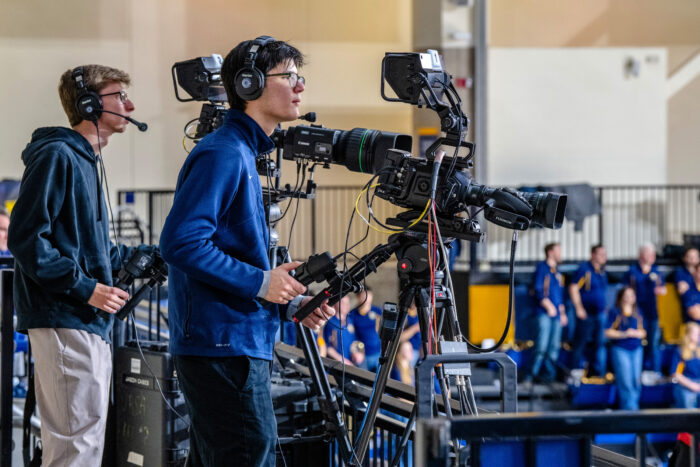
Fostering a more welcoming campus is one of many goals Marquette has for improving diversity, equity and inclusion—and it’s something that Dr. Deborah Contreras-Tadych takes seriously as diversity coordinator in the Counseling Center.
Here in a Q&A, the licensed psychologist talks about her Marquette experience and her current work with students, including underrepresented students.
As a three-time Marquette graduate, what drew you to Marquette and what has kept you here?
I grew up on the south side of Milwaukee just two miles from campus, so from little on I knew that I wanted to be at Marquette when I was older.
I had a wonderful undergraduate experience, double majoring in social work and Spanish. I secured a position on campus after graduation and took advantage of the benefit to continue my education. I completed a master’s degree in community counseling and then was admitted into the Ph.D. program in counseling psychology. Near the end of the doctoral program, I began working at the Sixteenth Street Community Health Center, where I was able to serve the community on Milwaukee’s south side, providing services in both English and Spanish.
I returned to Marquette in fall 2018 to work in the Counseling Center, and it felt like coming home. I am a bilingual psychologist and the diversity coordinator; I’m also part of the center’s training team where I supervise and mentor doctoral students and post-doctoral fellows.
How does the Counseling Center help incoming first-year students as they transition to Marquette?
Starting college can be an exciting but stressful time for first-year students. At the Counseling Center, we assist with normalizing the adjustment process, support students in establishing healthy routines, and encourage meeting people and trying new things. We see a lot of anxiety in students, especially our first-year students — many of whom are also first-generation college students — and therefore provide psychoeducation on anxiety and teach anxiety reduction skills.
As mental health needs are growing worldwide, our first goal at the Counseling Center is to raise awareness that we exist. At the beginning of the academic year, we try to reach out to as many groups and departments as possible to introduce ourselves and our services.
When underrepresented student groups are apprehensive about attending counseling services, what are some tips that you recommend to make them more comfortable?
We attempt to normalize the counseling process. Life is stressful and everyone has difficulties and can use support. The Counseling Center exists on campus as a free and confidential service to full-time undergraduate and graduate students.
At times, because we are affiliated with the university, students think that parents or university personnel will find out they are coming to us. That is untrue. We cannot even acknowledge that someone has come to the Counseling Center without the client’s consent. With very few exceptions, things are kept completely confidential. Our counselors are all licensed and trained to work with a variety of student concerns.
How are counseling sessions tailored specifically for underrepresented students?
An integral part of the treatment process is working to understand the unique perspective of each client, which is informed by their background and intersecting identities. Therefore, all counseling sessions are individually tailored for each student with all these components in mind. A counselor will meet with the students one-on-one to get to know them, assess current functioning and collaborate on goals and a treatment plan.
How is the Counseling Center active on campus?
The Counseling Center provides hundreds of outreach events to the Marquette community each year. Students and professors are encouraged to contact our office about coming to their organizations or classes to present on topics such as counseling services, stress, suicide prevention, anxiety, imposter syndrome and microaggressions, to name just a few.
Each counselor is paired with an academic college and a residence hall so each has a mental health liaison. Our counselors also sit on many university committees so they have a voice.
We are accessible 24/7. During normal office hours there are on-call counselors available to speak or meet with briefly with students immediately and to assist with crisis situations. Additionally, there is someone on call evenings and weekends for emergencies. Students just need to call our office or stop in on the second floor of Holthusen Hall.


